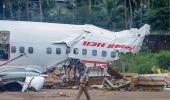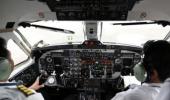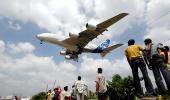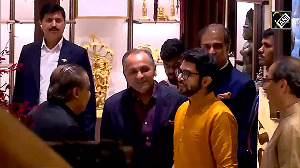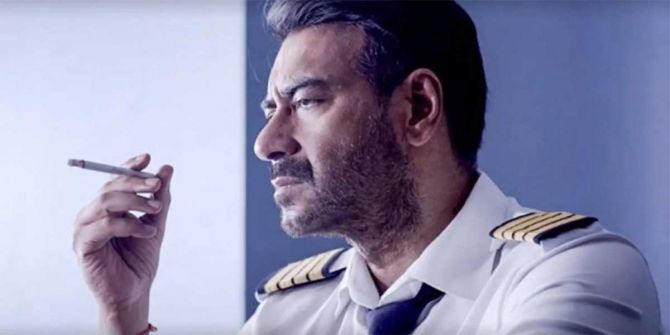
Kindly note the image from the film Runway 34 has been posted only for representational purposes..
It has been six months since the Directorate General of Civil Aviation's rules regarding the use of drugs by aviation professionals came into force on January 31.
According to these rules, commercial airlines and air navigation service providers have to carry out random drug tests on at least 10 per cent of their flight crew and air traffic controllers every year.
In recent weeks, three airline pilots have tested positive for psychotropic substances.
In the case of all three crew members, the samples were sent overseas for a confirmatory test using the gas chromatography mass spectrometry (GC-MS) or liquid chromatography mass spectrometry (LC-MS) technologies.
The DGCA confirmed the positive tests, but did not share further details.
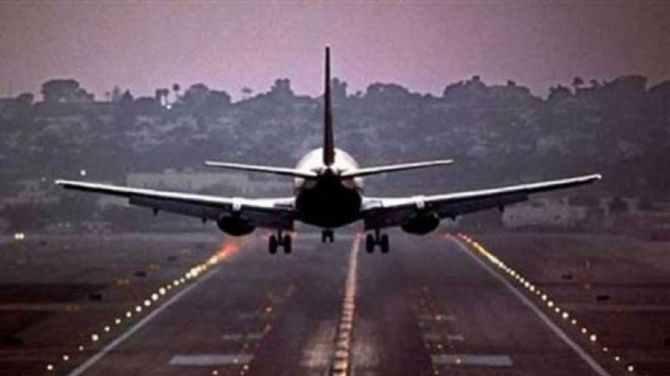
The need to comply with rules that require screening for drugs in the aviation industry has, meanwhile, also highlighted the limited capabilities among private laboratories in the country to conduct drug tests.
According to DGCA rules, a two-step process is to be followed.
First, a urine test is carried out to check for any of the six psychoactive substances under the regulations.
If the sample is found to be valid and the screening shows the presence of one or more psychoactive substances, then a confirmatory test needs to be carried out.
In India, only a few private diagnostic laboratories provide confirmatory tests for 'drugs of abuse' such as opiates, cannabis and cocaine, among others.
This is due to high equipment cost -- a GC-MS and LC-MS machine costs around Rs 4 crore to Rs 5 crore (Rs 40 million to Rs 50 million) each -- and limited demand for drugs of abuse testing.
While a few IT companies and BPOs require recruits to undergo drug screening tests, it makes for miniscule business for laboratories.
"At Dr Lal PathLabs we do both screening and confirmatory tests for drugs of abuse," a spokesperson said.
"However, if there is any specific supply chain bottleneck, then we might outsource them (confirmatory tests) to reputed labs in the US with whom we have tie-ups," said Bharath Uppiliappan, CEO, Dr Lal PathLabs.
In India, drugs of abuse testing is at a very nascent stage and still a developing area, he added.
"However, we are building capabilities in this area keeping in mind future potential."
This includes digital technology solutions that can be used to ensure smooth chain of custody and for screening tests.
"We do screening and confirmatory tests for drugs of abuse," said a Metropolis Healthcare spokesperson.
"Confirmatory tests are done using LC-MS technology by qualified personnel meeting quality requirements We receive several samples for testing annually, which come from clinics, for pre-employment testing and from the aviation sector," the spokesperson added.
A critical aspect in drug of abuse testing is chain of custody to ensure proper collection and documentation.
The entire process has to be tamper-proof and labs need to develop necessary expertise for that.
SRL Diagnostics and Thyrocare only offer screening tests for drugs of abuse.
"For confirmatory tests we have a tie-up with Mayo Clinic laboratory of the US," said Anand K, CEO of SRL Diagnostics.
"The confirmatory tests can be done in India if we have sufficient workload since we have technologies like GC-MS and LC-MS. We use these technologies at our lab for therapeutic drug monitoring for immunosuppressants and antifungals, apart from newborn screening tests," Anand added.
When contacted about the mechanisms in place to comply with DGCA rules, a Vistara spokesperson said: "At Vistara, we ensure that all protocols and regulatory guidelines are strictly adhered to, including all testing for relevant staff.
"All mandated tests are conducted at government-approved laboratories or at the Vistara training centre, which has been inspected and audited by DGCA auditors."
Other airlines did not respond to queries emailed to them by Business Standard.
Feature Presentation: Ashish Narsale/Rediff.com



